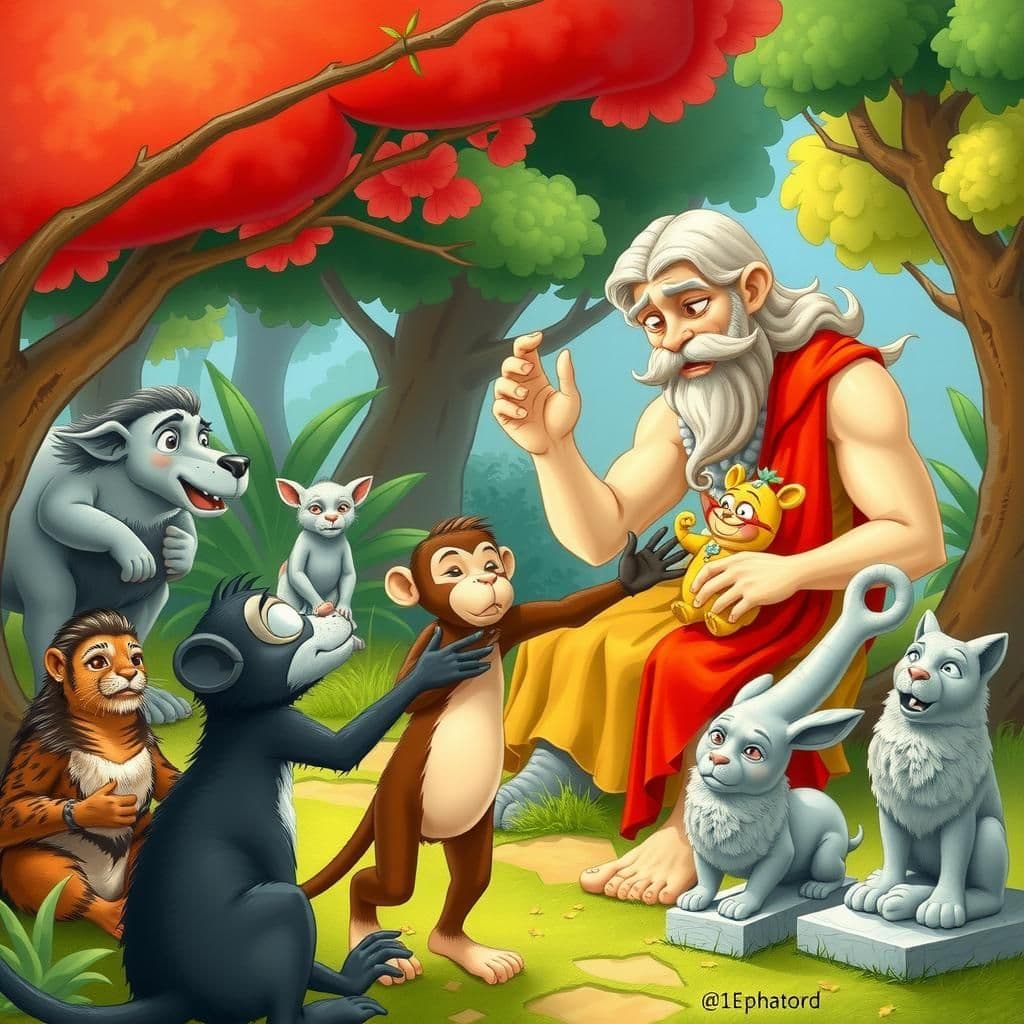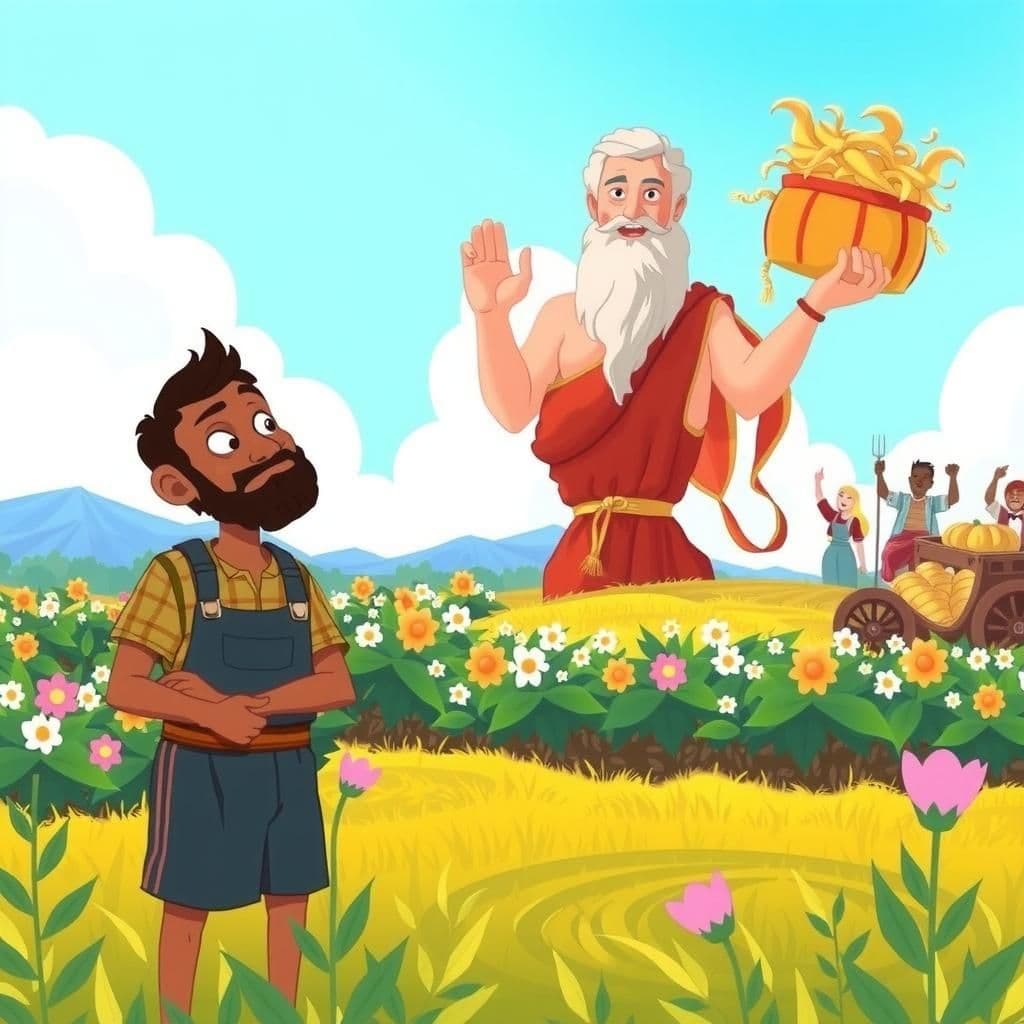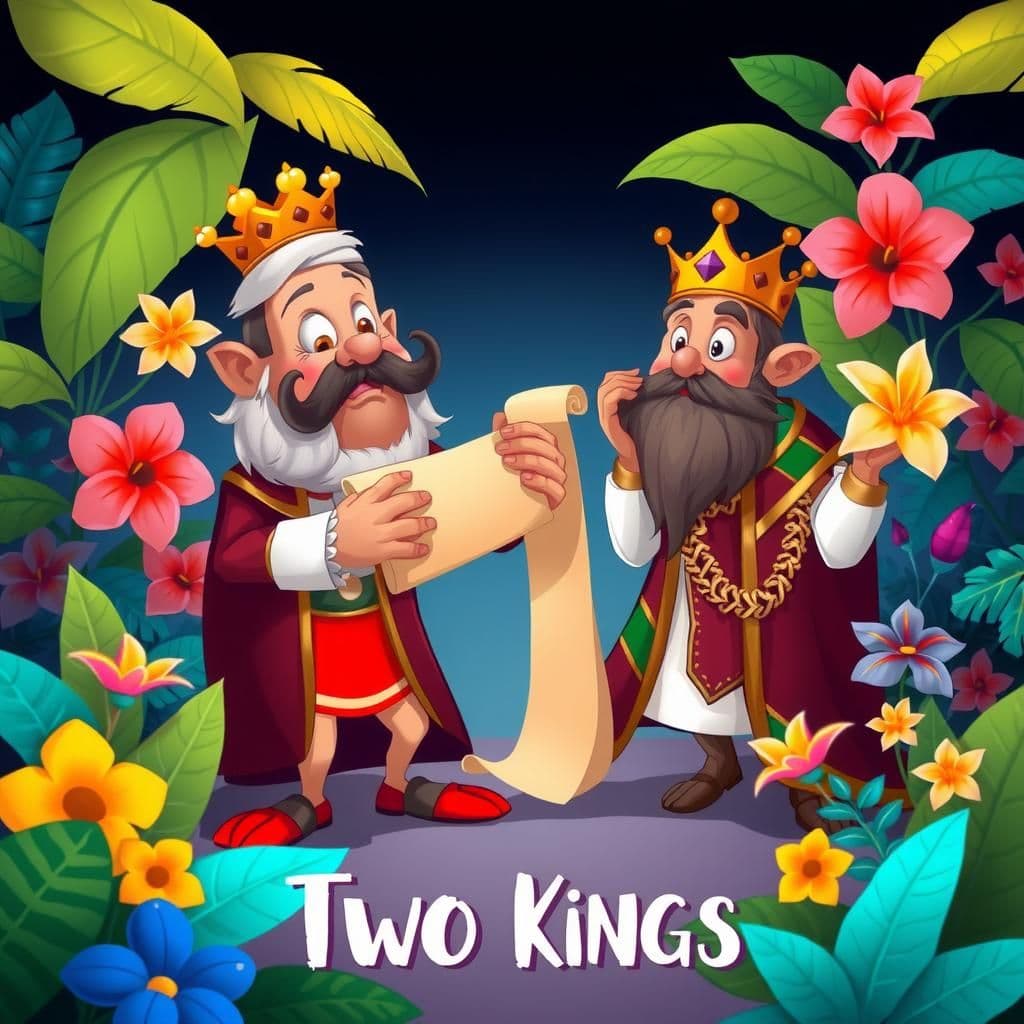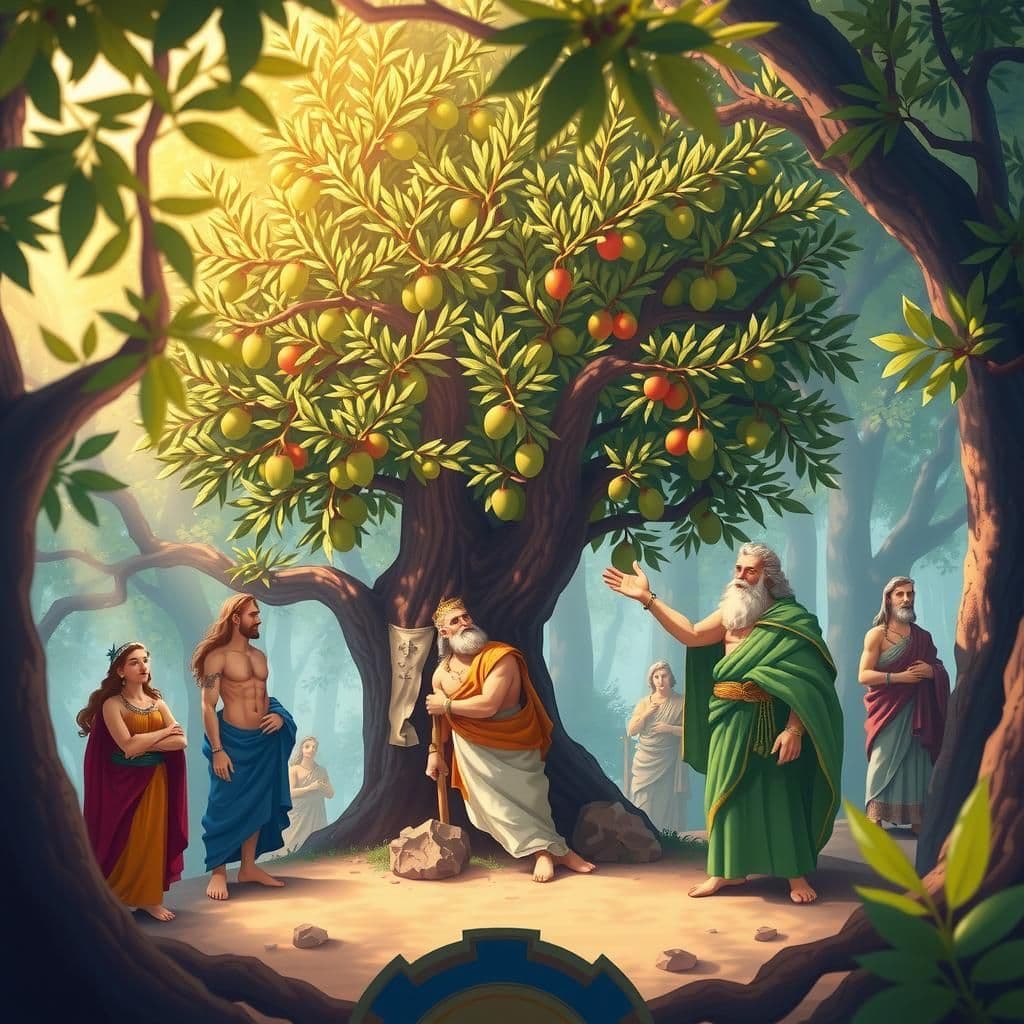Jupiter and the Baby Show

Story Summary
In "Jupiter and the Baby Show," a clever Monkey enters her unattractive cub in a competition hosted by Jupiter, who initially mocks the cub's appearance. However, the Monkey turns the tables by highlighting the flaws in Jupiter's own offspring depicted in antique sculptures, prompting Jupiter to award her the first prize to avoid embarrassment. This impactful moral story emphasizes the value of humility and the importance of recognizing one's own imperfections, making it a noteworthy addition to short story collections with moral lessons.
Click to reveal the moral of the story
The moral of the story is that one should not be quick to judge others, as everyone has flaws, including oneself.
Historical Context
This fable, likely inspired by Aesop's storytelling tradition, reflects themes of hypocrisy and the nature of beauty in both human and divine realms. The tale critiques the standards of judgment and reveals the absurdity of pride, as seen in various retellings throughout history, including those by Jean de La Fontaine and in Renaissance literature, where the flaws of the powerful are often humorously exposed.
Our Editors Opinion
This story highlights the idea that even those in positions of power can be hypocritical and that beauty is often subjective, shaped by societal standards rather than inherent value. In modern life, this is reflected in scenarios such as social media influencers who promote unrealistic beauty ideals while often relying on filters and editing themselves, leading to a culture of superficiality that contradicts their own authenticity.
You May Also Like

Jupiter and the Sharecropper
In "Jupiter and the Sharecropper," a prideful sharecropper learns a valuable lesson about humility when he arrogantly attempts to control the weather for a prosperous harvest, only to fail while his neighbors thrive. This uplifting moral story illustrates the importance of trusting in Providence rather than one's own hubris, ultimately conveying that true success comes from acceptance and faith. Through this meaningful story with moral, readers are reminded of the lessons learned from stories that emphasize the value of humility and reliance on a higher power.

Two Kings
In the short moral story "Two Kings," the King of Madagao, embroiled in a dispute with the King of Bornegascar, demands the recall of his rival's Minister. Faced with an enraged refusal and the threat to withdraw the Minister instead, the terrified King of Madagao hastily complies, only to comically trip and fall, humorously violating the Third Commandment. This tale, rooted in folklore, serves as a reminder of the consequences of pride and hasty decisions in well-known moral stories.

The Trees Under the Protection of the Gods
In "The Trees Under the Protection of the Gods," various deities select trees for their protection, favoring those that do not bear fruit to avoid the appearance of greed. Minerva advocates for the fruitful olive, leading Jupiter to impart a thought-provoking moral: true glory lies in usefulness, not superficial honor. This short and sweet moral story highlights the importance of impact over appearance, making it a compelling lesson on value and purpose.
Other names for this story
Jupiter's Baby Contest, Monkey's Prize-Winning Cub, The Animal Baby Showdown, Jupiter's Laughing Awards, Prizes for Peculiar Offspring, A Show of Unusual Babies, The Contest of Curious Cubs, Jupiter's Unique Baby Show
Did You Know?
This fable humorously critiques the tendency of individuals in power to dismiss others while being hypocritical about their own shortcomings; Jupiter's laughter at the Monkey's cub reflects a common human behavior of judging others without recognizing one's faults. The story cleverly uses the absurdity of a beauty contest among animals to highlight themes of vanity and self-awareness.
Subscribe to Daily Stories
Get a new moral story in your inbox every day.